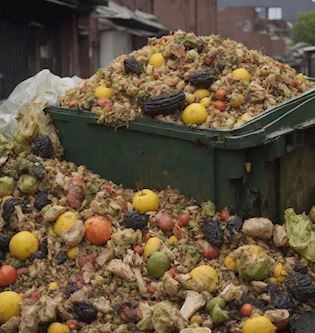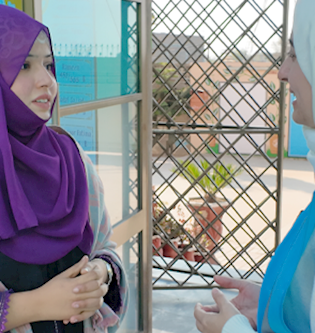Six Ways to Give Your Zakat in 2021

*This blog is predominantly based on Hanafi fiqh, although other schools of thought are also alluded to.
The month of Sha’ban is inching closer, which means the year-end accounting of our actions is just weeks away. Rajab is the last month before Sha’ban and so this is the perfect time to take stock of the last year, fulfill any debts and complete any unmet resolutions before our actions are raised to Allah (swt). One of the most important annual duties to fulfill in Rajab is Zakat.
Uthman ibn Affan (ra) said, ‘This (Rajab) is the month for you to pay your Zakat. If you have any debts then pay them off, so that you can sort out your wealth and take the Zakat from it’. [Malik]
From learning how to value your gold, to making sure you’re paying Zakat on all the necessary assets, here’s everything you need to know before giving your Zakat this year.
Tip One: Check the latest value of your gold and silver.
You need to pay Zakat on any gold over 87.48 grams and any silver over 612.36 grams. Most people pay their Zakat in cash, so knowing the price of gold and silver per gram is essential. T value of gold has dramatically increased over the last few months, so it’s super-important to get your assets valued.

You can value your assets in two ways.
Option 1: Contact your local jeweler and get a precise figure according to the value of scrap gold. We recommend this as the most accurate method.
Option 2: Find the universal price for gold and silver online and use our Zakat Calculatorto work out the value of your jewelry. This is generally the more expensive option, but it is also the quickest and easiest. Simply multiply the current price of gold per gram by the total weight of your gold.
Example: Fatima has 100 grams of gold. The cost of gold costs R816.00 per gram. This means Fatima has R816,000 worth of gold.
Tip Two: Check the latest Nisab value to calculate correctly.
Nisab basically means the minimum amount of wealth you need to have before you must pay Zakat. The figure for Nisab fluctuates every year because it is based on the value of gold and silver.
You can see the latest silver Nisab on our Zakat Calculator so make sure you bookmark the page.
Use the silver Nisab to calculate how much Zakat to pay on your cash, property, investments, and businesses, as well as any silver jewelry you may own. Meanwhile, the gold Nisab is used to calculate the Zakat for our gold assets.
Tip Three: Be aware of paying Zakat on gold jewelry
If you have gold assets above the gold Nisab then you need to pay Zakat on that too. However, there is a difference of opinion on whether or not you need to pay Zakat on jewelry.
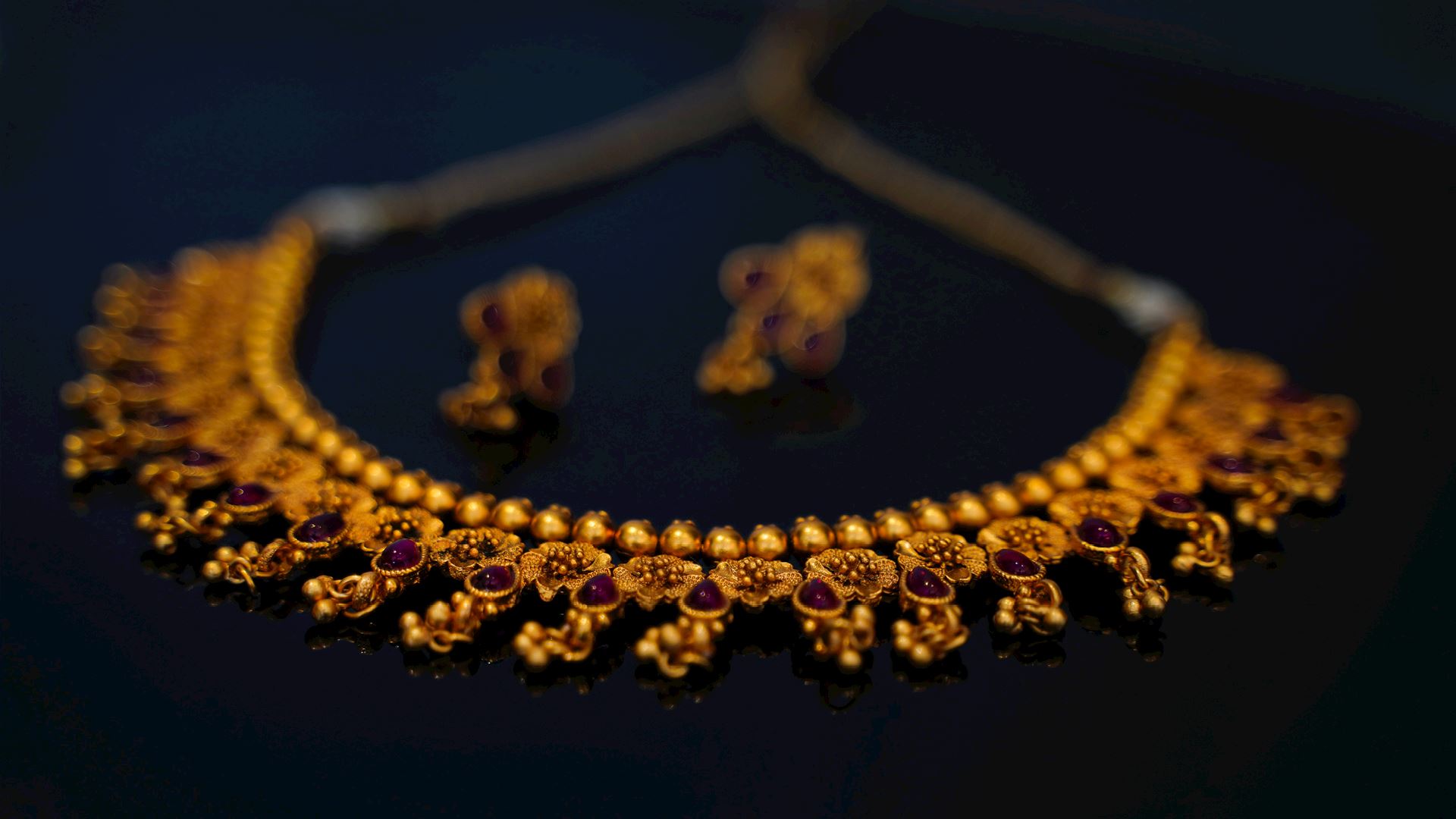
Some scholars state you need to pay Zakat on all gold and silver (above the Nisab level), including jewellery. However, you don’t have to pay Zakat on other precious metals like platinum and precious stones like diamonds. Other scholars say that mixed metals are only liable for Zakat if half or more of the metal is gold or silver.
There is also a belief that if the jewellery is being used or worn regularly, then it is not deemed as an asset and you don’t have to pay Zakat on it.
If you are buying jewellery for the purpose of accumulating wealth or selling it later, or if you have what would generally be considered an extravagant amount that you are unlikely to wear every day, you must pay Zakat on it.
These differences of opinion can make it easier for women who have not been able to work in the last year due to the coronavirus crisis, but still own gold jewellery which has suddenly gone up in value.
However, many women prefer to pay Zakat on all their gold and silver as it gives you peace of mind that you have fulfilled your Zakat absolutely, removing any doubt from your mind. Giving Zakat also purifies and increases our wealth.
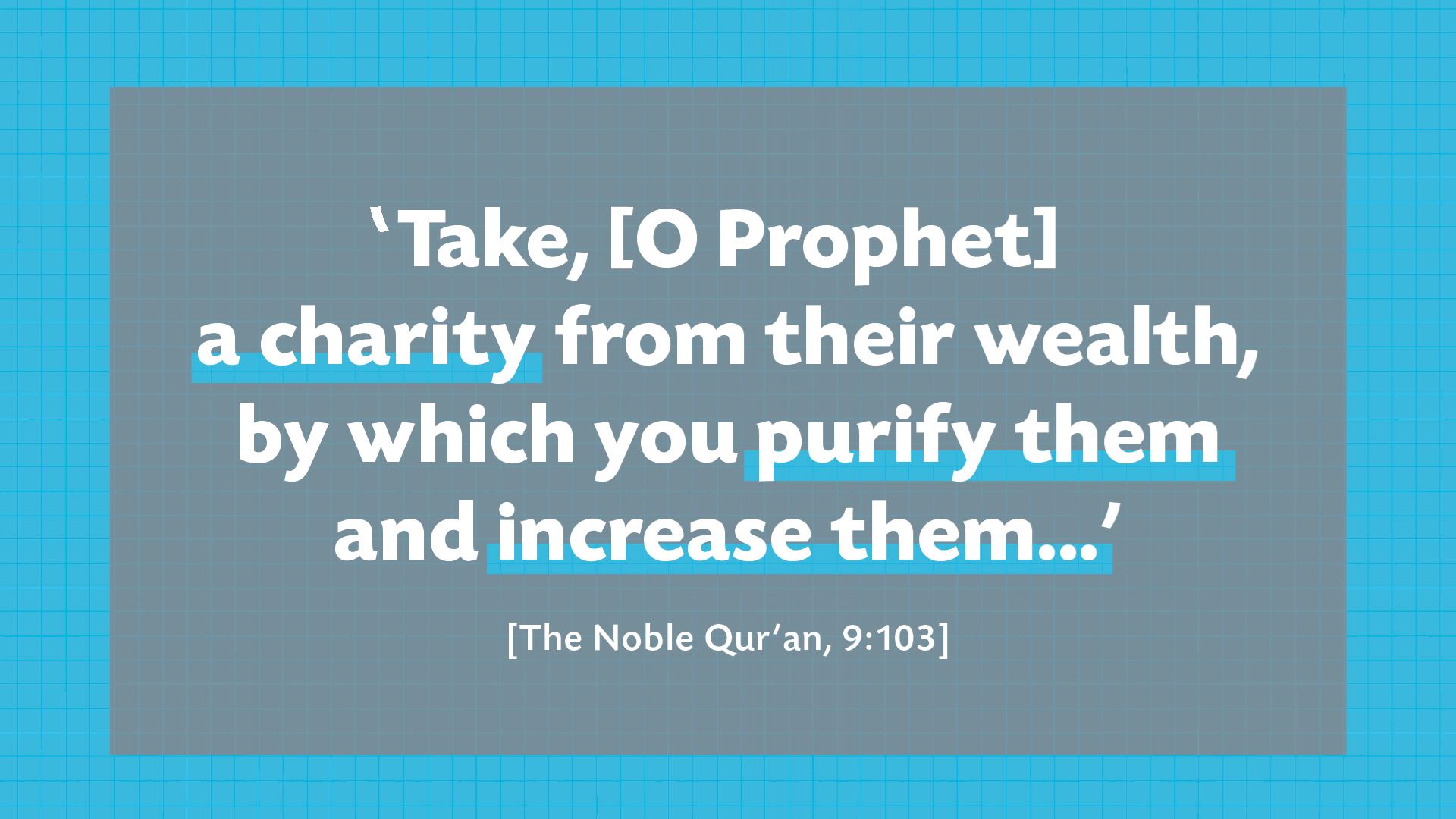
Tip Four: Be aware of paying Zakat on all eligible assets.
Don’t forget to include these assets when paying Zakat:
Pensions: Zakat must be paid on the amount of your pension that you have contributed (voluntary contributions) within the year, but not on the portion paid by your employer.
Shares: If you don’t intend to sell the shares, then Zakat is due on dividends you earn from them. However, if you are buying and selling shares, then Zakat is only due on their current market value.
Property: Any property other than your home must be considered for Zakat. If you are in the business of buying and selling properties, Zakat is due on the current resale value of these properties. If you are in the business of letting properties, then Zakat is due on savings made from the rental income only.
Loans: If you have lent anyone money and believe the debt can be recovered on demand, then you need to pay Zakat on it this year. However, if you have doubts about recovering the debt, you don’t need to pay Zakat on it until you actually receive the money. At that point, you will also need to pay Zakat for all the previous years when the debt was outstanding.
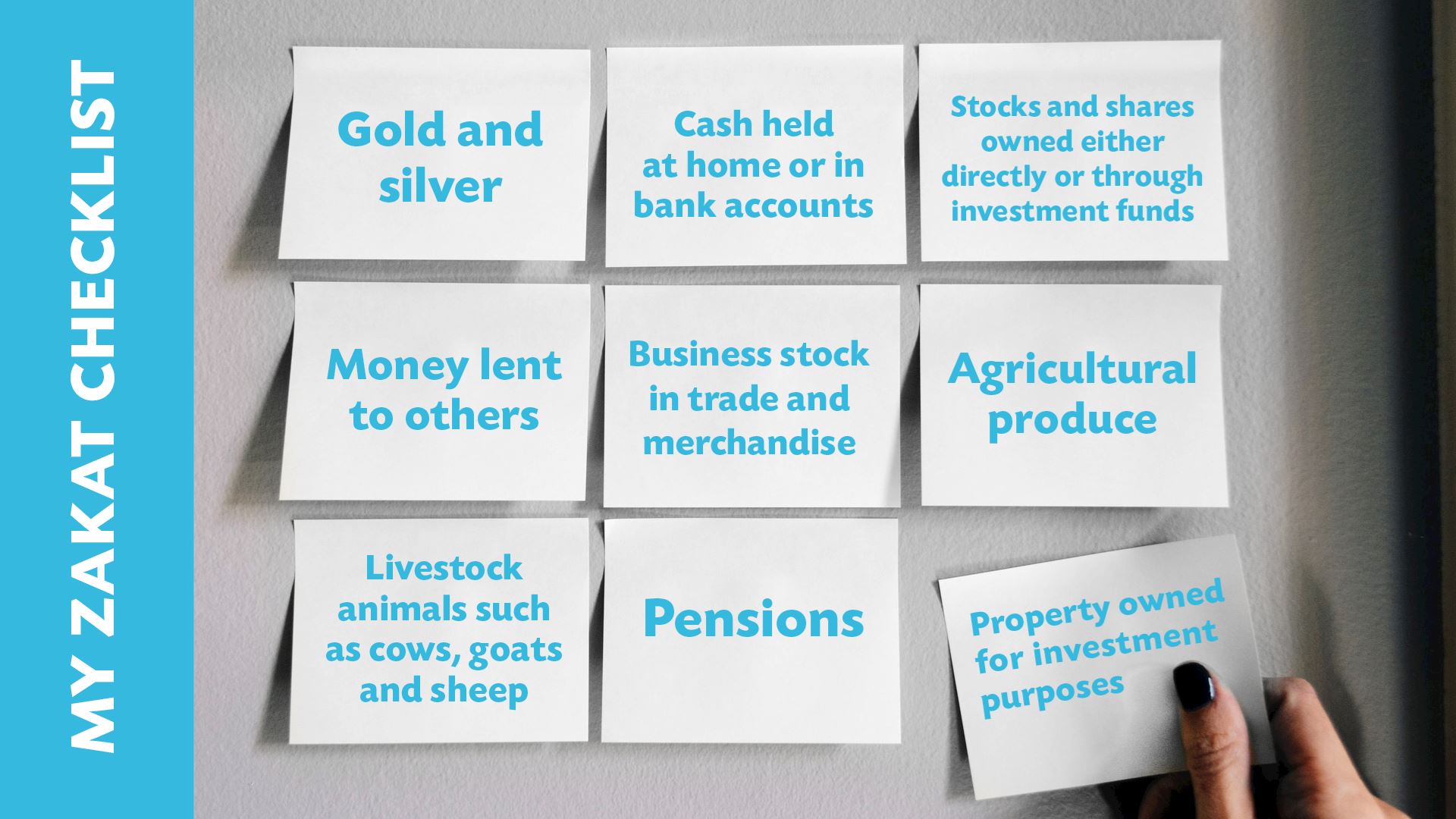
Tip Five: make sure you’re not paying Zakat where you don’t need to.
Any unpaid rent, house payments, utility bills that are due or overdue should be excluded when calculating your Zakat.
Any money that you owe should be paid before you calculate your Zakat. As mentioned before, Uthman (ra) advised that we do this in Rajab.
If you own a business, any unpaid rent, property payments, invoices or staff salaries that are due or overdue should be excluded.
Our handy Zakat Calculator takes all this into account when calculating your Zakat.
Tip Six: Keep records of every time you give Zakat
Zakat is due on your wealth annually, but most people prefer not to pay one lump sum at the end of the year. Rather, they give Zakat during the course of the year – for example -
- Donating towards a cause or emergency appeal
- During sacred days to gain extra rewards - for example, in the last ten nights of Ramadan.
- In monthly installments, to make the payments more

-
It is fine to pay Zakat at different times in the year but just remember to keep a record of every time you give Zakat. This way, you can calculate whether you paid the correct Zakat at the end of the year.
It is fine to pay Zakat at different times in the year. It's fine even to give future Zakat this year, if there's a cause you really want to support. Just remember to keep a clear record of every time you give Zakat and to calculate whether you paid the correct Zakat at the end of the year.
This is an important obligation, often mentioned in the same ayah as Salah and we don't want to accidentally give less than what Allah has commanded!

Tip Seven: Use the Muslim Hands Zakat Resources
Alhamdulillah, our team has been handling your Zakat for many years and we take the responsibility and trust you bestow on us very seriously.
We have some great resources to help you calculate your Zakat correctly. After all, this is an important obligation, often mentioned in the same ayah as Salah and so you don’t want to accidentally give less than what Allah has commanded.
On behalf of our entire team, we wish you a most blessed end to the month of Rajab! As the Prophet (saw) said, ‘O Allah, bless us in our Rajab and Sha’ban and enable us to reach Ramadan’ [Ahmad]. Ameen!







